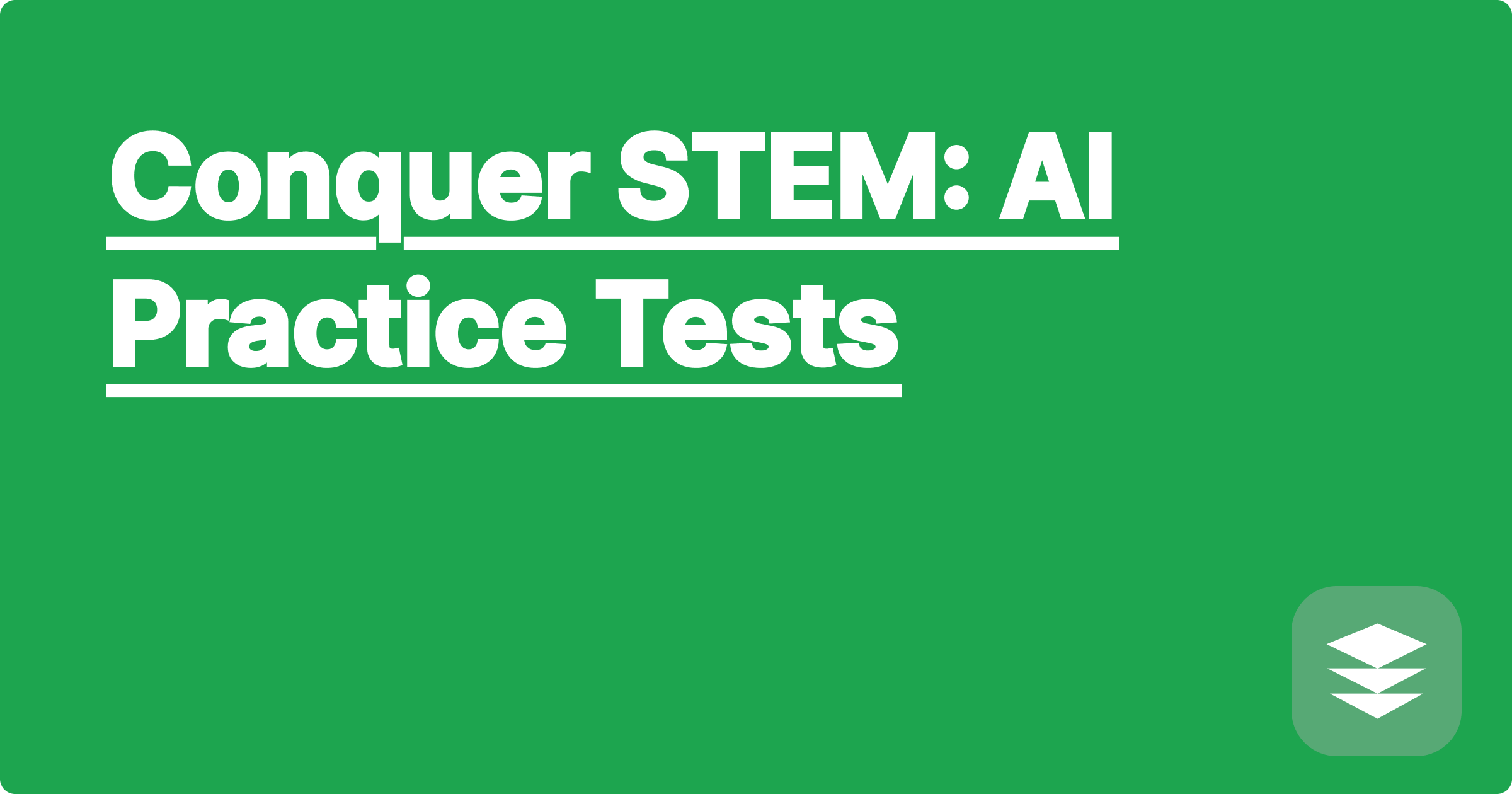
The ever-evolving landscape of STEM fields presents a significant challenge for students and researchers: staying ahead of the curve. The sheer volume of information, coupled with the rapid pace of advancements, can feel overwhelming. Artificial intelligence offers a powerful toolkit to navigate this complexity, providing innovative solutions for learning, research, and problem-solving. AI-powered tools can personalize learning experiences, automate tedious tasks, and unlock new avenues for exploration, ultimately empowering STEM professionals to conquer their academic and professional goals.
This matters deeply for STEM students and researchers because success in these fields increasingly depends on the ability to leverage cutting-edge technologies. Embracing AI isn't just about keeping up; it's about gaining a competitive edge. By mastering AI tools, STEM professionals can enhance their understanding of complex concepts, accelerate their research, and contribute meaningfully to their respective fields. This proficiency will become increasingly crucial as AI continues to reshape the future of STEM.
STEM fields often involve grappling with intricate concepts, extensive datasets, and complex problem-solving. Traditional learning methods can sometimes fall short in providing the personalized support and efficient tools needed to effectively navigate this complexity. Students may struggle to grasp abstract concepts, while researchers may find themselves bogged down by time-consuming data analysis and literature reviews. The sheer volume of information can also make it challenging to identify the most relevant resources and stay updated on the latest advancements. This creates a need for more dynamic and adaptive learning and research tools that can cater to individual needs and accelerate the pace of discovery.
AI tools like ChatGPT, Claude, and Wolfram Alpha offer a transformative approach to STEM education and research. These platforms can be leveraged to generate practice tests, explain complex concepts, provide step-by-step solutions to problems, and even assist with writing and editing research papers. ChatGPT and Claude, for example, can be prompted to create customized practice tests based on specific topics or learning objectives. Wolfram Alpha excels at handling complex calculations and providing detailed explanations of scientific concepts. By integrating these AI tools into their workflow, STEM professionals can unlock new levels of efficiency and understanding.
To generate a practice test using ChatGPT or Claude, begin by providing a clear and specific prompt. For example, you might ask the AI to "Create a practice test with 10 questions covering the principles of quantum mechanics." Specify the desired difficulty level and format of the questions. You can further refine the prompt by including specific topics or concepts you want the test to cover. Once the AI generates the practice test, carefully review the questions and answers to ensure accuracy and relevance. You can then use the test to assess your understanding of the material and identify areas where you need further study.
Consider a student studying organic chemistry who needs to master the concept of SN2 reactions. They could ask ChatGPT to "Generate a practice test with 5 questions on SN2 reactions, including questions on stereochemistry and reaction rates." ChatGPT might then generate questions like, "Predict the product of the reaction between (R)-2-bromobutane and sodium cyanide," or "Explain how the concentration of the nucleophile affects the rate of an SN2 reaction." Wolfram Alpha can be used to calculate complex equations related to chemical kinetics or thermodynamics. For example, a researcher studying the thermodynamics of a chemical reaction could use Wolfram Alpha to calculate the Gibbs free energy change for the reaction.
To maximize the benefits of AI in STEM education and research, it's essential to develop effective prompting strategies. Clearly and concisely defining your needs will help the AI generate more relevant and accurate results. Experiment with different prompting techniques and refine your approach based on the AI's responses. It's also crucial to maintain a critical mindset and not blindly accept the information provided by AI tools. Always double-check the accuracy of the information and consult with reliable sources. By integrating AI tools strategically and thoughtfully, STEM professionals can unlock their full potential and achieve academic excellence.
In conclusion, AI offers a transformative opportunity for STEM students and researchers to overcome the challenges of a rapidly evolving field. By embracing AI-powered tools like ChatGPT, Claude, and Wolfram Alpha, individuals can personalize their learning, accelerate their research, and gain a deeper understanding of complex concepts. Starting today, explore these AI platforms, experiment with different prompting techniques, and discover how these powerful tools can empower you to conquer STEM and achieve your academic and professional aspirations.
Conquer STEM: AI Practice Tests
AI Math Solver: Instant Solutions
AI Lab Assistant: Automate Tasks
Smart STEM Learning: AI-Powered
AI Science Solver: Easy Answers
Pass STEM Exams: AI-Powered Guide